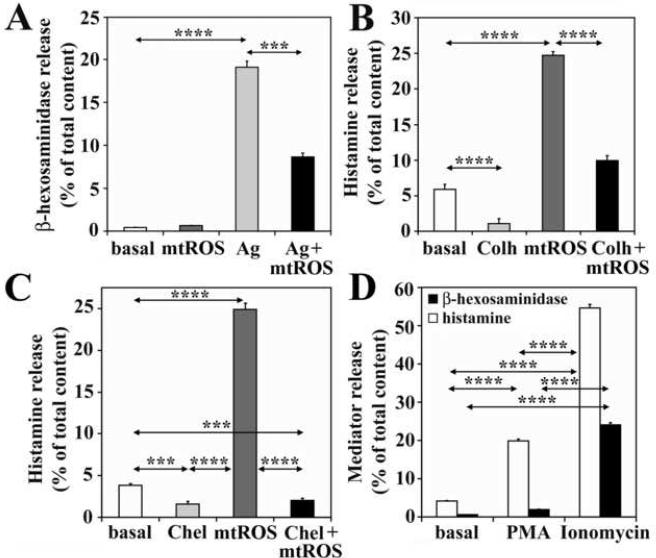Figure 6.
Protein kinase C (PKC)-dependent migration of secretory granules is a requirement for mtROS-induced histamine release. Mitochondrial dysfunction does not increase β-hexosaminidase secretion from non-sensitized cells and it inhibits release of this enzyme from antigen (Ag)-treated sensitized cells (A). Colchicine (Colh), an inhibitor of the motility of secretory granules, decreases both basal and mtROS-induced release of histamine (B). Chelerythrine chloride (Chel), an inhibitor of PKC, decreases spontaneous and mtROS-induced histamine release (C). A PKC activator, 4 beta-phorbol 12-myristate 13-acetate (PMA), imitates the effects of mtROS (D). Mitochondrial dysfunction was induced by AA treatment (10 μM). ***P< 0.001, ****P< 0.0001.

